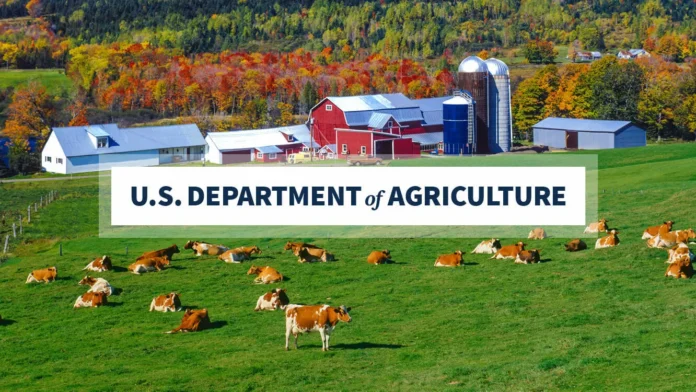The U.S. Department of Agriculture (USDA) has taken a significant step towards addressing climate change with the announcement of the Greenhouse Gas Technical Assistance Provider and Third-Party Verifier Program Advisory Council. This new council, informally known as the Growing Climate Solutions Act Advisory Council, will play a crucial role in helping the USDA achieve its goal of reducing greenhouse gas emissions and promoting sustainable agriculture practices.
In a Federal Register notice published today, the USDA invited nominations for membership on the council, signaling its commitment to working with experts and stakeholders to find effective solutions to the challenges posed by climate change. This move is a clear indication of the USDA’s determination to take a leadership role in addressing one of the most pressing issues of our time.
The Growing Climate Solutions Act Advisory Council will serve as a platform for collaboration between the USDA and various stakeholders, including farmers, ranchers, forest owners, and environmental organizations. The council will provide technical assistance and third-party verification services to help these stakeholders implement sustainable practices that reduce greenhouse gas emissions and mitigate the effects of climate change.
The establishment of this council is a significant step towards achieving the USDA’s goal of reducing greenhouse gas emissions by 50% by 2050. Agriculture is responsible for a significant portion of greenhouse gas emissions, and the USDA recognizes the need for urgent action to address this issue. By working closely with stakeholders, the USDA hopes to find innovative solutions that will not only reduce emissions but also promote sustainable and profitable agriculture practices.
The council will also play a crucial role in promoting the Growing Climate Solutions Act, which was signed into law in June 2024. This legislation aims to create a voluntary carbon credit market that will provide financial incentives for farmers and ranchers to adopt sustainable practices. The council will provide technical assistance to help farmers and ranchers navigate this market and ensure that they receive fair compensation for their efforts to reduce emissions.
The USDA is seeking nominations for council membership from a diverse range of experts and stakeholders. This includes individuals with expertise in agriculture, forestry, climate science, and environmental policy. The council will consist of 15 members, with representation from both the public and private sectors. This diverse composition will ensure that all perspectives are considered and that the council can provide well-rounded and effective recommendations to the USDA.
The establishment of the Growing Climate Solutions Act Advisory Council is a significant milestone in the USDA’s efforts to address climate change. It demonstrates the agency’s commitment to working with stakeholders to find practical and sustainable solutions to this global challenge. By bringing together experts and stakeholders from various backgrounds, the council will provide a platform for collaboration and innovation, which is crucial in tackling such a complex issue.
The USDA’s announcement has been met with widespread support from environmental organizations, farmers, and ranchers. This is a testament to the agency’s efforts to engage with stakeholders and involve them in the decision-making process. The council’s formation is a positive step towards building a more resilient and sustainable agricultural sector that can adapt to the challenges posed by climate change.
In conclusion, the establishment of the Greenhouse Gas Technical Assistance Provider and Third-Party Verifier Program Advisory Council is a significant development in the USDA’s efforts to address climate change. This council will play a crucial role in promoting sustainable practices and reducing greenhouse gas emissions in the agricultural sector. The USDA’s commitment to working with stakeholders and finding practical solutions is commendable and sets an excellent example for other government agencies to follow. We look forward to seeing the positive impact that this council will have on our environment and our agricultural sector.

